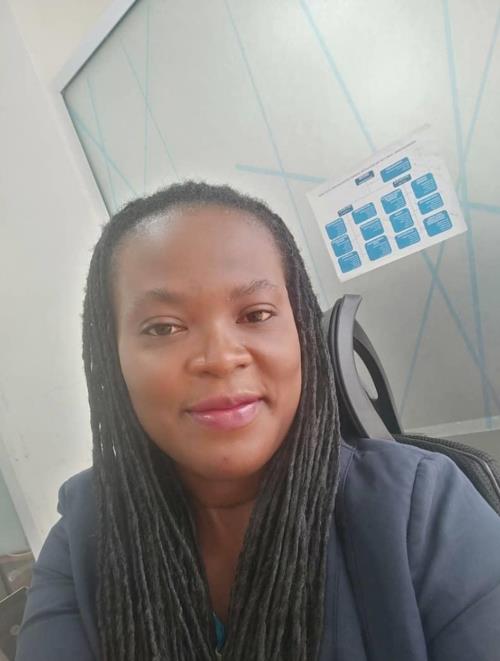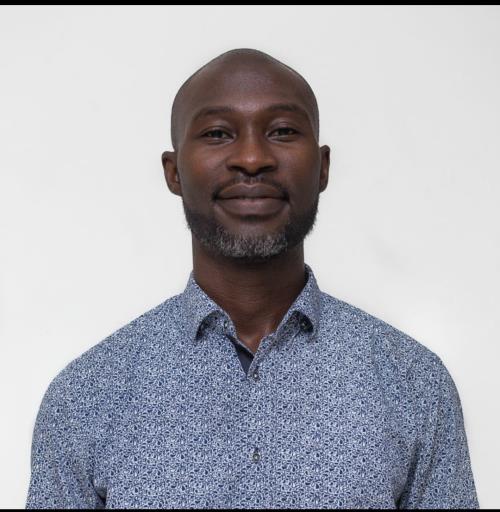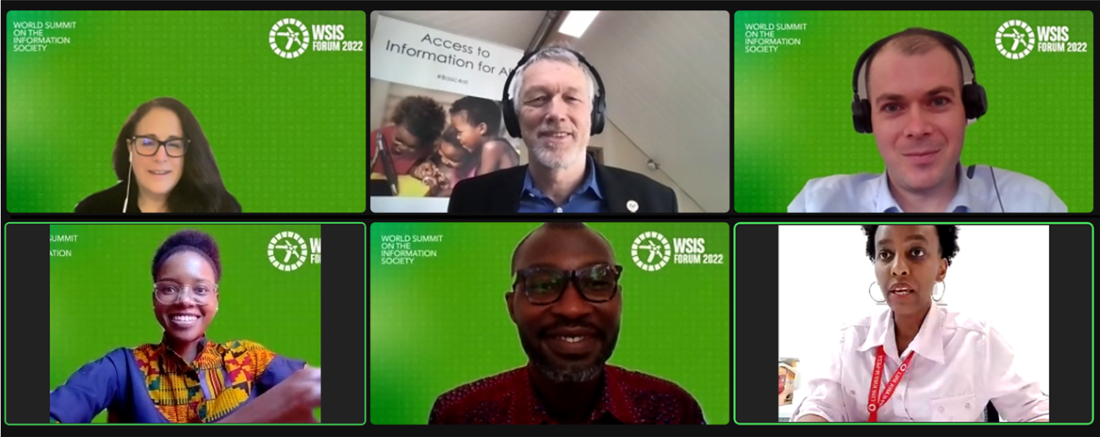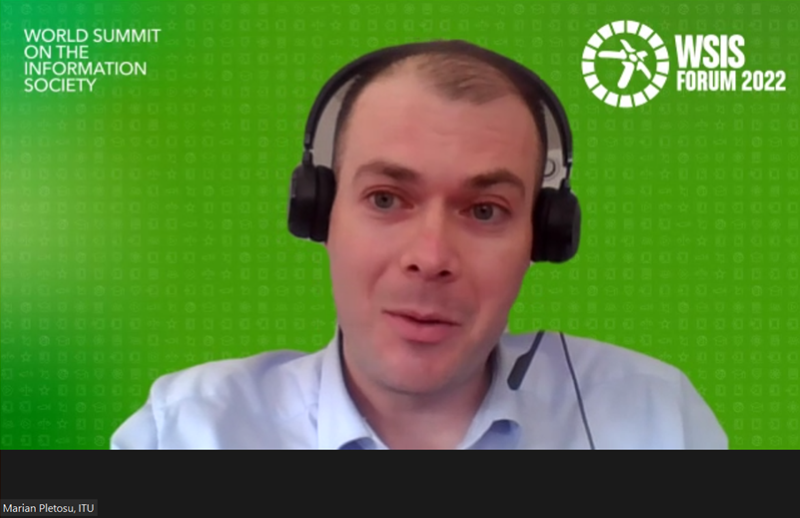Smart Solutions to connect everyone
Basic internet Foundation/ African Child Projects
Session 153
Special focus: Innovative Yet Affordable Interventions That are Set out to Connect Schools and Communities
Information and communications technology (ICT) has made widespread digital literacy important and urgent. The wide gap between those who have easy access to the internet and those who do not, popularly known as the “digital divide”, means that universal access is more important than ever. As the internet becomes increasingly embedded in the lives of individuals, communities and commerce, it is of paramount importance that everybody is connected, and that everybody understands the digital language. Digital Inclusion is a method of addressing issues related to digital literacy and access to ICT. One definition of digital inclusion, per The Institute of Museum and Library Services, is “the ability of individuals and groups to access and use information and communications technologies.”
Digital inclusion is a practical, policy-driven approach that addresses the needs of individuals and communities as a whole, with a significant impetus placed on connecting rural communities. It encompasses not only access to the Internet but the availability of hardware, software, digital content and services, and maybe most importantly, training for the digital literacy skills required for effective use of information and communication technologies. Digital inclusion is a blueprint for addressing and guiding the readiness of communities to fully embrace the digital age.
Having a great population that remains unconnected, it is important that they get reached with acess to basic contents that are necessary for development and normal lives. Various affordable interventions are needed to connect these communities on individual or community basis. This unconnected population is mostly located in communities from developing or underdeveloped countries. Upon connecting these communities, it is expected that these communities will be opened to the world and with opportunities thereinafter, development will be accelerated, thus reaching imtended global goals on total poverty eradication

Jane R Coffin
Short Bio
Jane Coffin has been working at the center of technology/connectivity, policy/regulatory issues, and
development since 1997.
Connect Humanity, January 2022-present
Chief Community Officer
Working with communities to fund connectivity, de-risk future investments and provide more
sustainable paths to digital equity and inclusion through community networks, muni-networks, and nontraditional networks.
Internet Society, April 2012-November 2021
Senior Vice President Internet Growth: January 2020-November 2021
Led Internet infrastructure development and community development teams.
Focus on Community Networks, Internet exchange points (IXPs) and interconnection, new funding
mechanisms to support infrastructure development, health of the Internet data collection and platform
development, policy-regulatory change to support connecting the unconnected, partnership
development, grants and fundraising, and worked with ITU, OECD, UNHCR, UNESCO, GIGA, CITEL, ATU,
APT, and other global, regional, and local connectivity and development entities. Brought in over USD 3
million in grants for Internet Infrastructure development.
Senior Advisor to the CEO: January 2019-August 2019
Led Internet infrastructure teams, managed regional directors, and advised new CEO on infrastructure
and partnership development issues.
Director Development Strategy: April 2012-December 2018
Led a team of over 20 experts to build Internet infrastructure in over 30 countries. Partnered with
experts around the globe, participated in numerous ITU, U.N., and Internet technical community events
to focus on better policies to support Internet development. Brought in ISOC’s first major grant of $1.3
Million from Google for IXP, Interconnection, and community development.
National Telecommunication and Information Administration (NTIA), US DOC
Senior Policy Specialist - Office of International Affairs: October 2006-April 2012
Co-chaired Federal IPv6 Task Force to encourage deployment of IPv6 in
US Government agencies Worked closely with ICANN, IETF, ISOC, ARIN, AFRINIC, LACNIC, APNIC, and
RIPE NCC on IP addressing issues. Negotiated international Internet technical and policy issues to
preserve an open Internet at CITEL, ITU, OECD and other fora. Built relationships around the world with
policy-makers and regulators to
support US policies and interests.
USAID Project - Armenia
Deputy Chief of Party and Telecommunications Regulatory Reform Lead: Nov 2004- Octo 2006
Created telecommunications regulatory body with utility regulator, worked with local experts to open
the telecommunications market, revise laws and regulations
USAID Project - Moldova
Chief of Party Regulatory Strengthening Project: January 2002-September 2003
Worked with existing telecommunications regulator to strengthen regulatory environment

Professor at the University of Oslo (UiO) and Secretary-General at the Basic Internet Foundation. His focus at UiO, where he leads "Digital Health" at the Centre for Global Health, is on Societal Security, including the impact of digitisation. Coming from the Mobile Operator Telenor, where his group was responsible for the 3G (UMTS) development, he has identified the digital divide as one of the big societal challenges. Through the Foundation he promotes "Internet Lite for All", the free access to information for everyone.

Justina Mashiba is the Chief Executive Officer and member of the Board of the Universal Communication Service Access Fund (UCSAF) a government Agency under the Ministry of Information, Communication and ICT in Tanzania.
Justina Mashiba is a Lawyer by professional and for more than a decade she has built her career in Commercial law, Tax, Management and, ICT Locally and Internationally.
For the past seven years she has been involved in the work of International Telecommunication Union (ITU) contributing in the work of Study Group 1. She is also serving as a Vice Rapporteur of Question 5 of Study Group 1.

Short Biography: Mrs. Ivy Tuffuor Hoetu is a Telecommunications/ICT specialist with over
12 years’ experience. She has a passion for promoting digital
inclusion/connectivity, internet development and affordability in Ghana
and globally as well as empowering individuals to use ICTs for self development.
She currently handles Licensing of Telecommunications Services and issues
on Internet Governance (IG) and related matters at the National
Communications Authority (NCA) in Accra.
Ivy holds MSc. Degree in Telecommunications Management from the Ghana
Communication Technology University and BSc. Computer Science and
Psychology from the University of Ghana.

Kwaku is an effective and dynamic ICT policy advocate with over ten years of
experience covering multiple sectors across Caribbean and African markets. He has
worked at the Jamaica National Bank and the Jamaica Early Childhood Development
Foundation and taught at the Ghana Institute of Management and Public Administration.
He regularly delivers research and consulting support for government reform projects
and businesses looking to bridge the Caribbean and African Markets.
He is a regular contributor to international conferences on the future of the internet and
speaker at ICT forums and workshops, as well as a trainer and lecturer in both business
and academic contexts. Kwaku is also active in policy groups and forums, a member of
the Alliance for Affordable Internet (A4ai) Ghana Coalition, the Internet Society (ISOC)
Ghana Chapter, Ghana Internet Governance Forum Steering Committee. He is also
Programs and Projects Director at Africa Open Data and Internet Research Foundation
(AODIRF), Secretary of the Ghana Sector Skills Body for ICT of the Commission for
Technical Vocational Education Training
(C-TVET)
and Senior Advisor for Policy
Impact Partners (PIP) in Ghana.
Kwaku specialises in ICT policy and regulation, he has a particular interest in the key
role next generation and community-based networks can play in developing digital
ecosystems and addressing the needs of the underserved and unconnected. He is a
strong believer in the importance of addressing policy issues through a multistakeholder
approach focused on consensus building and delivering holistic, impactful solutions.
Kwaku holds a BBA in Marketing from the University of Technology, Jamaica (Utech,
Ja), an MSc. in Telecommunications Policy and Technology Management from the
University of the West Indies (UWI) and is currently a PhD in Public Administration
candidate at the Ghana Institute of Management and Public Administration (GIMPA).

Sandra Oswald is a Sustainable Social Impact Development Practitioner with over 10 years of experience in Social Development Projects. Sandra has a background in Development Studies conferred by La Trobe University and is currently pursuing Master’s Degree in Project Management from the Eastern Southern African Management Institute (ESAMI), an intergovernmental regional management development centre. She is passionate about transforming lives by creating value and impact to individuals and communities where her skills apply.
She believes in the power of harnessing technology, science and collaboration to mobilize resources to bring about sustainable development to facilitate Inclusive Growth in Education and Agriculture with focus on ensuring gender parity and youth participation in the economy of the country.
She uses her leisure time to dive into networking activities, watching movies, swimming and travelling around the world.
-
 C1. The role of governments and all stakeholders in the promotion of ICTs for development
C1. The role of governments and all stakeholders in the promotion of ICTs for development
-
 C2. Information and communication infrastructure
C2. Information and communication infrastructure
-
 C3. Access to information and knowledge
C3. Access to information and knowledge
-
 C4. Capacity building
C4. Capacity building
-
 C5. Building confidence and security in use of ICTs
C5. Building confidence and security in use of ICTs
-
 C6. Enabling environment
C6. Enabling environment
-
 C7. ICT applications: benefits in all aspects of life — E-government
C7. ICT applications: benefits in all aspects of life — E-government
-
 C7. ICT applications: benefits in all aspects of life — E-business
C7. ICT applications: benefits in all aspects of life — E-business
-
 C7. ICT applications: benefits in all aspects of life — E-learning
C7. ICT applications: benefits in all aspects of life — E-learning
-
 C11. International and regional cooperation
C11. International and regional cooperation
Action line 1 and 2, There is still a challenge on a clear action line relating to connectivity of rural areas and facilities such as schools, dispensaries. Most of these are only stated in point form and thus can only be understood by individuals with intensive knowledge in the field. Also as strategic assurance on these implementations isn't provided and so many initiations taken by local grassroot stakeholders fail as most challenges that hinder implementation lack platforms or provisions that provide solutions or roadmaps.
There is still a challenge on clear vision in Action Plans and how each would be implemented, thus hindering many stakeholders from knowing where their solutions could clearly fit within WSIS action lines. More clarification should be provided on these, thus enabling workable and sustainable solutions for success.
Action 3, calls for action towards access to public information. Many multinational organizations such as (Common Voice project by Mozilla Foundation) and companies have taken steps towards implementing this through ensuring open source data as digital public goods. This has gone hand in hand with ensuring accessibility and simplicity on the contrary, it is opiniorized that there’s no specific open source site for WSIS where all matters related to WSIS and its action lines could be available for public access. Also, digital public libraries are still a challenge in many places. Although few initiatives have been taken to ensure availability and affordability of such libraries in public spaces and schools with focus being in rural areas within developing countries.
Action Line 4 advocates for capacity building in areas of basic literacy, education learning e.t.c. Many initiatives have been made towards achieving this from various stakeholders. However, with the arrival of COVID-19, less initiatives have been made towards implementation of these action lines in developing countries like Tanzania. With focus on public schools that carry the majority of students, schools were forced to re-open without implementation of many precautions as there were no digital education platforms that could suffice for distance learning or self learning. The case is even severe as there are no implementation strategies in rural areas where there are no supportive digital infrastructures, poor or no connectivity and lack of digital literacy, considering the fact that more than half of the population in developing countries reside in rural areas.
Action Line 5, provides for a call in building confidence and security in ICT. However, less is done in assuring implementation of this action line at the level of developing states. in countries like Tanzania and the rest, cyber security is still a challenge. Despite the government making efforts like enactment of cyber laws in 2015, cyber security is still a challenge where there are alot of violations in digital rights like cyber bullying in aspects like gender or social classes. Additionally, cyber security initiatives are expensive to possess and maintain on the level of local digital platforms/ enterprises or on an individual level, thus more action is needed in assuring the affordability and accessibility of this action line.
Action Line 8, Cultural diversity, linguist diversity and local content is provided. Progress has been made by platforms like Mozilla Common Voice towards implementation by initiating programs that would enable diversifying of languages and contents in accordance to specific societies and language dialects. However, many open source and 0ther digital platforms have limitations towards popular content, regional dialects and official languages. This leaves behind local communities or dialects unrepresented, making digitalization underutilized in such regions and people.
Action Line 11, Financing of ICT infrastructures and Network companies. There has been a lot of developments in the ICT sector among member states of the UN. This extends to developing countries where introduction to new technology and utilization of modern communication systems has been initiated. However, less has been done towards assuring affordability and equality in accessibility by all people. In continents like Africa, there are less than 50 data centers unequally distributed among member states. Example in East Africa, only Kenya and Rwanda possess data centers among 7 member states. Despite the presence of optic fibres (that are also limited), data costs are still soaring with increase in price every year. This limits the speed on the spread and use of ICT for good or development by the majority who must depend on the internet to run most of their ICT related activities.
-
 Goal 1: End poverty in all its forms everywhere
Goal 1: End poverty in all its forms everywhere
-
 Goal 4: Ensure inclusive and equitable quality education and promote lifelong learning opportunities for all
Goal 4: Ensure inclusive and equitable quality education and promote lifelong learning opportunities for all
-
 Goal 8: Promote inclusive and sustainable economic growth, employment and decent work for all
Goal 8: Promote inclusive and sustainable economic growth, employment and decent work for all
-
 Goal 10: Reduce inequality within and among countries
Goal 10: Reduce inequality within and among countries
-
 Goal 11: Make cities inclusive, safe, resilient and sustainable
Goal 11: Make cities inclusive, safe, resilient and sustainable
-
 Goal 17: Revitalize the global partnership for sustainable development
Goal 17: Revitalize the global partnership for sustainable development
Putting more focus on including non-digital users, who contribute much in sustaining the challenge of the digital divide, through advocating for multiple trainings on ICT in all sectors that are digital inclusive. Eg. In educational institutions, in various workplaces, etc.
Encouraging digitalization in all forms of economic activities i.e social and financial organisations, focus being on developing/ underdeveloped countries especially rural unconnected areas, which will help reach out and introduce ICT to vast majorities together with building foundations for further learning.
Addressing the problem of ICT security vulnerability especially in less developed countries, less developed regions with low level of technology and innovative ways to suggest security solutions at affordable and viable mechanisms. This would encourage more stakeholders to invest and utilise ICT and E-commerce thus impliedly influence customers
http://new.africanchildprojects.org
Check out African Child Projects (@africanchildpr3): https://twitter.com/africanchildpr3?s=08
https://www.instagram.com/p/CPsKMxcHHb2/?utm_medium=copy_link
https://www.linkedin.com/in/african-child-projects-9107831bb
https://youtube.com/channel/UC6SELrsvP6dUochH-3Fva3w
https://www.facebook.com/African-Child-Projects-515204502237616/





